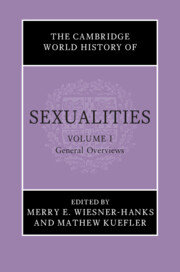In many African societies, gender roles and sexuality are intensely scrutinized, policed, and often enforced. Frequently, this situation results in perceived deviations being characterized in very strong terms. Many Africans across religious and denominational boundaries seem united in their opposition and criticism of same-sex relationships. In the twenty-first century, criminalization of same-sex relationships has witnessed an uptick across the continent. In Nigeria, same-sex union was criminalized in 2014, an act that witnessed massive support from Protestant, especially Pentecostal, Christian communities. Prominent Pentecostal leaders spearheaded the campaign in support and defense of the anti-gay laws in the country. Reasoned opposition to a practice based on religious faith, doctrine, and scriptural prescriptions is an integral aspect of the protection for the practice of religion. However, there is a palpable tension in the debates around rights to free sexual expression as a fundamental element of legally protected human rights and the equally constitutionally embedded right to religious practice, expression, and exercise. At what point, therefore, does the respect for the free exercise of religion and religious expression come into conflict with the respect for, and protection of, minority rights such as claimed rights to sexual expression such as many LGBTQI persons are increasingly contesting? Framed differently, is the verbal and non-verbal promotion of hatred, violence, indignity, and insult or giving offence to a segment of the population based on sexual orientation a part of free religious expression? How do the Pentecostal arguments against same-sex relations in Nigeria approximate to hate speech, defined as a verbal attack on a person or group of persons based on their attributes such as gender and sexual orientation, religion, or ethnicity? To analyze these and related issues, this essay examines the arguments used by the leader of the largest Pentecostal organization in Nigeria—and by far, the most important Pentecostal voice in the country—in the wake of the legal prohibition of homosexuality in Nigeria in 2014.


